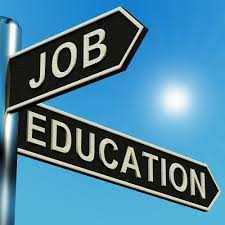The Importance of Education and Employment for Personal and Societal Growth
Education and employment are vital elements that shape individual lives and contribute to societal progress. They are often interdependent: education is a foundation that opens pathways to better job opportunities, while employment offers practical applications of knowledge and skills, economic independence, and social mobility. Together, these pillars empower individuals to develop personally and professionally, positively impacting communities and the broader economy.
Education: Foundation of Opportunity
Education serves as the cornerstone of opportunity by equipping individuals with knowledge, critical thinking skills, and practical abilities that prepare them for various roles in society. From primary schooling to higher education and specialized training, education aims to develop well-rounded individuals with the skills needed to adapt in a constantly changing world. Studies consistently show that individuals with higher levels of education have greater access to job opportunities, earn higher wages, and experience better working conditions. For instance, university graduates are often more employable than those with only high school diplomas due to their advanced knowledge and specialized skills.
Beyond providing career opportunities, education also promotes personal growth and fosters civic responsibility. Educated individuals tend to participate more actively in their communities and engage in civic activities, including voting and volunteering. Education also encourages creativity, problem-solving, and adaptability, which are valuable qualities in both personal and professional settings. In this way, the impact of education extends beyond individual benefits to help build more stable, informed, and engaged societies.
Employment: The Practical Application of Education
Employment serves as the platform for individuals to apply the skills and knowledge acquired through education in real-world contexts. Through work, individuals contribute to society, gain economic independence, and achieve personal fulfillment. Employment is not just about earning an income; it gives individuals a sense of purpose, strengthens their sense of identity, and fosters connections with others.
In today’s knowledge-based economy, the demand for skilled labor is higher than ever, making education an essential precursor to employment. Jobs in sectors such as technology, healthcare, engineering, and finance require specialized training and expertise that only education can provide. These fields offer promising career opportunities, but they also require workers to continually upgrade their skills, a practice known as lifelong learning. By regularly updating their skills, workers remain competitive in the job market and can adapt to technological advancements and changing industry needs.
For many, the journey from education to employment is not always linear. Challenges such as economic downturns, automation, and regional disparities can disrupt job availability, forcing individuals to adapt by learning new skills or shifting careers. Such adaptability often hinges on an individual’s educational background, as a broader range of knowledge can provide more job opportunities. For example, someone with a general background in science may find it easier to transition into emerging fields, like data analysis or environmental sustainability.
The Relationship Between Education, Employment, and Economic Development
Education and employment are key drivers of economic development, directly influencing a nation’s productivity and prosperity. Countries with well-educated workforces tend to experience higher levels of innovation, increased economic growth, and enhanced global competitiveness. A skilled workforce can attract foreign investments, spur entrepreneurial activities, and support local industries, leading to more job creation and economic diversification.
For developing countries, increasing access to quality education and promoting employment opportunities are essential steps toward reducing poverty and improving standards of living. As individuals gain access to higher-paying jobs through education, they contribute to the economy by increasing demand for goods and services, which in turn can create additional jobs. Governments often play a crucial role in this process by investing in educational programs, vocational training, and job-creation initiatives.
Challenges and the Way Forward
Despite the recognized benefits, challenges persist in aligning education with job market demands. Rapid technological advancements and changing economic landscapes require constant updates in educational curriculums and training programs. Additionally, income inequality and limited access to quality education can create disparities in job opportunities, often affecting marginalized communities the most.
To address these issues, collaborative efforts among governments, educational institutions, and businesses are essential. By fostering partnerships that focus on skills development, enhancing vocational training, and promoting continuous learning, societies can build more resilient and adaptable workforces.
Conclusion
Education and employment are critical to individual growth, social stability, and economic prosperity. By investing in quality education and creating inclusive employment opportunities, societies can empower individuals to reach their potential while fostering sustainable development. As the world continues to evolve, prioritizing these areas will remain crucial in building a future where all individuals have the chance to succeed and contribute positively to society.



No comments yet
Be the first to share your thoughts!